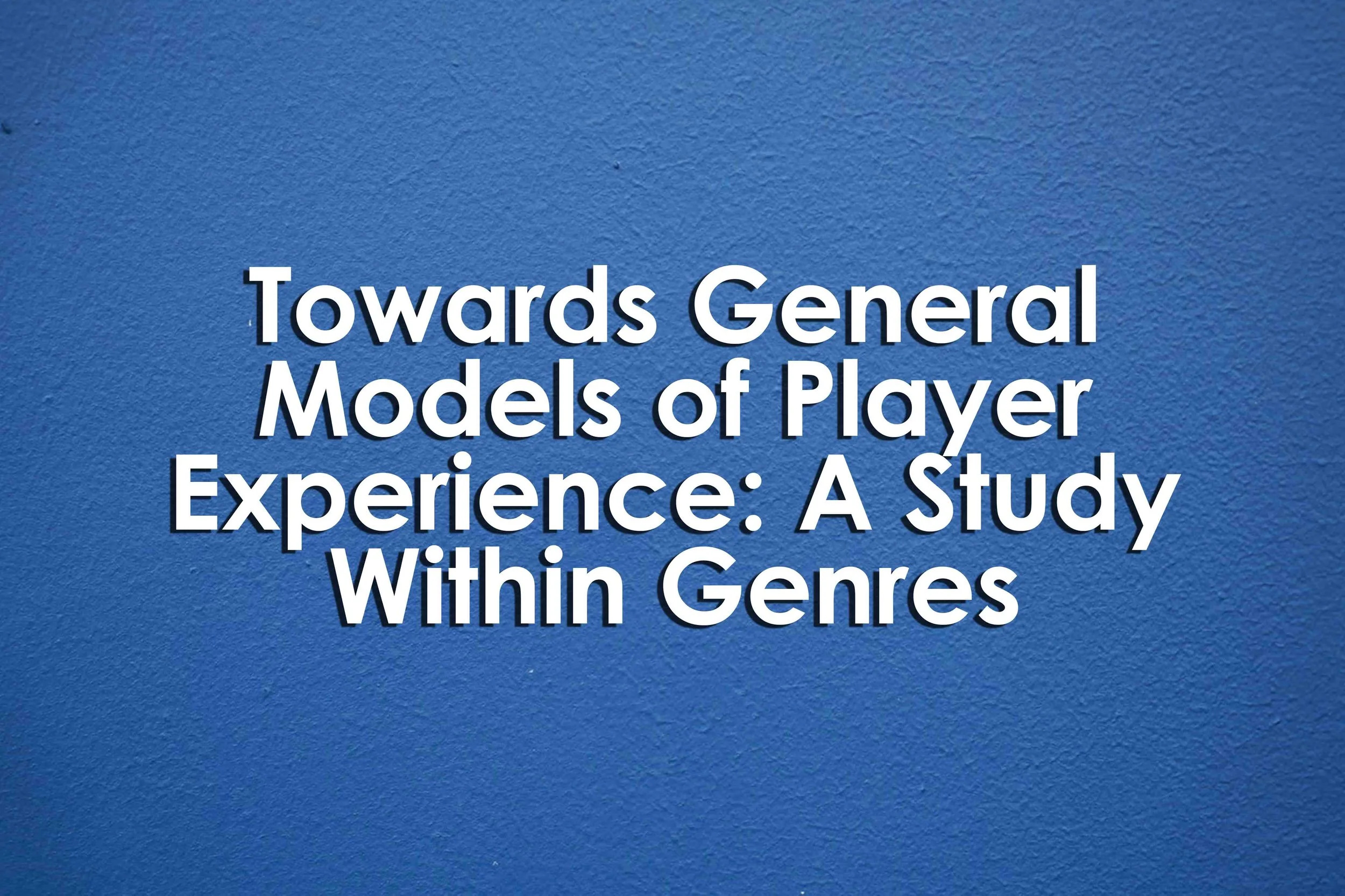Towards General Models of Player Experience: A Study Within Genres
Towards General Models of Player Experience: A Study Within Genres
Towards General Models of Player Experience: A Study Within Genres
By David Melhart, Antonios Liapis, and Geogios N Yannakakis
Abstract
“To which degree can abstract game play metrics capture the player experience in a general fashion within a game genre? In this comprehensive study we address this question across three different videogame genres: racing, shooter, and platformer games. Using high-level game play features that feed preference learning models we are able to predict arousalaccurately across different games of the same genre in a large-scale dataset of over 1, 000 arousal-annotated play sessions. Our genre models predict changes in arousal with up to 74% accuracy on average across all genres and 86% in the best cases. We also examine the feature importance during the modeling process and find that time-related features largely contribute to the performance of both game and genre models. The prominence of these game-agnostic features show the importance of the temporal dynamics of the play experience in modeling, but also highlight some of the challenges for the future of general affect modeling games and beyond.”
Reference
Melhart, D., Liapis, A., &Yannakakis, G. (2021, October 03). Towards general models of player experience: A study within genres. Retrieved November 03, 2021, from https://arxiv.org/abs/2110.00978
Keyword
General modelling, player modelling, affective, computing, preference learning, arousal, research

